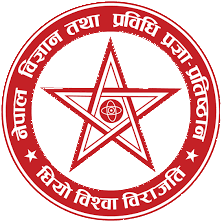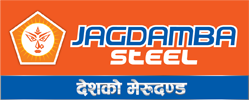Themes
The conference is designed as a three-day event with a field trip to
the reconstruction sites nearby Kathmandu Valley. The first day will
be devoted to learning from the past in which important operators of
earthquake risk management initiatives such as the government
ministries, academia, private sector business, international
development partners and UN system will deliberate on the works
done so far, The second day, the conference will listen to exciting
accounts of response to the Gorkha earthquake in terms for rescue
and relief to early recovery, PDNA researches and development of
approaches for reconstruction. A critical evaulation will help develop
a consensus on the positive as well as negative learning which will
pave way ahead for developing elements of Nepal's approaches, broad contents, and emphasis in the program of earthquake disaster
risk management for Nepal. Nepal seeks to develop programs and
refine strategies for the next 12 years based upon the lessons learned
and national needs to achieve DRM targets of SFDRR by 2030.
We invite pertinent papers from experts and professionals from relevant
fields.
1) Learning from the experiences of past 3 decades
The sessions will include efforts by government agencies, NSET and
other Organizations and individuals.
| Plenary: Keynote Presentations |
|
» National Experiences on ERM
» International Experiences on ERM
» Initiatives and innovativeness of NSET’s long-term efforts
|
|
| Four Parallel Technical Sessions as per SFDRR Four Priorities |
|
» Nepal's journey from Yokohama to Sendai
» Earthquake Risk Management Technology for Developing World since 1988
» Udaypur to Gorkha Earthquake: Emergency Management and Response
» DRR Policy/Strategy
» Earthquake Technologies for Cities,Communities and Households
» Risk to Resilience: Paradigm Shift from Response to Mitigation
|
|
| Four Parallel Panel Discussions Sessions to Develop Concensus
on the Experience & Learning of the Past |
|
2) Understanding the present
Under this theme, experiences of 2015 Gorkha Earthquake and Post-
Earthquake Reconstruction will be discussed along with identified
gaps and progress. Also, an exercise will be done to carve out a
pathway of ERM for Nepal for the next decades in line with SFDRR,
Paris Agreement and SDG goals.
| Plenary: Keynotes |
|
» Gorkha Earthquake What it Testified ?
|
|
| Three Parallel Technical Sessions on How Gorkha Earthquake Tested Efficency of Policies, DRR Governace, Risk Reducaiton & Preparedness Efforts |
|
» Experiences from Gorkha Earthquake: Emergency Management and Response
» Experiences from Gorkha Earthquake: Reconstruction
» Experiences from Gorkha Earthquake: Recovery
|
|
|
Two Parallel Technical Sessions: Debating the Experiences
|
|
» Type Design Vs Contractual Solution
» In Situ Vs Relocation in reconstruction
» Gorkha Earthquake Reconstruction: is it SLOW?
» Owner-Driven vs Regimental Construction
|
|
| Plenary Session: Reconstruction to Sustainable Development |
|
» Concensus on what worked and what didn't
» Attention from 31 devastated districts to 77 districts of Nepal
» Spreading learning of Reconstruction from Singha Durbar to Municipalities
» Responsibilities spreading from Mayor to Individual
|
|
3) Searching the future
Developing a consensus on ERM Strategy for Nepal and bring out
a Consequences Resolution.
| Plenary: Keynotes |
|
» Potential Strategies and Priorities that could
be suitable in Nepal. In the Light Up Global
Frameworks, Advancements Science &
Technologies
|
|
| Four Parallel Technical Sessions as per SFDRR Four Priorities
|
|
| Plenary Session: |
|
» Presentation & Discussion on Draft ERM Strategy for Nepal for next decade and beyond including;
• Vision, Mission and Objectives
• Science & Technology for DRM
• Institution building
• Contextualizing DRM Principles to Federal
System of Nepal
» Adoption of Conference Resolution & Closing
|
|
|















